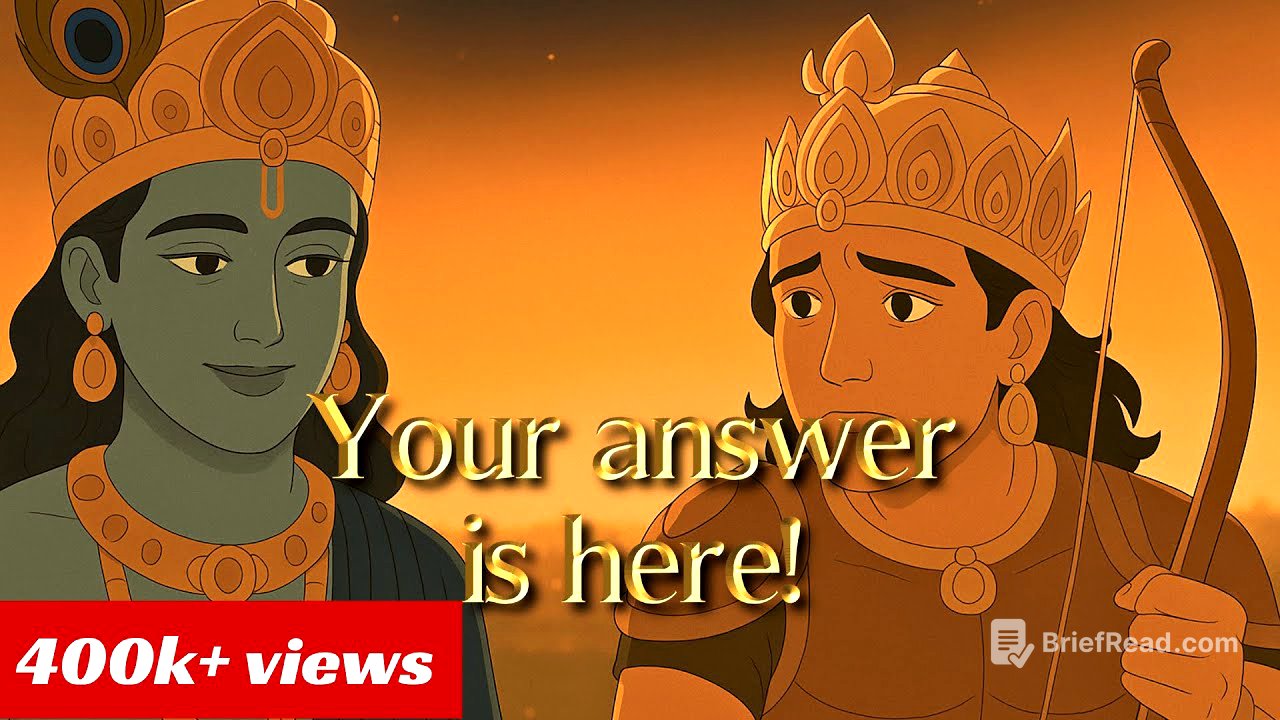TLDR;
This video explores a central verse from the Bhagavad Gita, focusing on the principle of acting without attachment to results. It highlights how modern society's emphasis on metrics and outcomes leads to burnout and anxiety. The video encourages viewers to find peace by focusing on their effort (dharma) rather than the results, advocating for a balanced approach of action, release, rest, and detachment. It frames this concept as a psychological truth applicable to everyday life, promoting inner peace and resilience.
- Focus on effort rather than results to combat burnout.
- Find freedom and peace by detaching from outcomes.
- Embrace dharma through consistent, quiet actions.
Introduction [0:00]
The video starts by highlighting the feeling of everything falling apart despite one's best efforts, referencing Arjuna's moment of hesitation in the Mahabharata. It introduces a key verse from the Bhagavad Gita: "You have the right to your actions, but never to their results." This verse offers clarity and is relevant to those feeling overwhelmed.
The Illusion of Results [0:48]
The video discusses how modern society measures worth through metrics like likes, marks, money, and promotions, leading to self-doubt when these aren't achieved. The Gita challenges this by asserting that one's worth lies in the effort, not the results. Burnout stems from expecting too much from every action, turning tasks into tests and pauses into sources of guilt. This creates a divide between the present and desired outcomes, disrupting inner peace.
Action and Detachment [2:05]
Krishna's guidance redirects Arjun's pain by emphasising sincere action and gentle detachment, clarifying that one owns the effort, not the result. This isn't detachment but freedom from the burden of outcomes. True dharma lies in the consistent, quiet efforts made without seeking recognition.
Dharma as Psychological Truth [2:37]
The Gita offers psychological truth, suggesting that obsessing over outcomes leads to anxiety, while focusing on effort expands one into peace. The video advocates for a cycle of action, release, rest, and detachment. The Mahabharata represents the internal war of self-doubt, echoing Arjun's questions about repeated failures. Krishna's timeless advice encourages action without calculating returns.
The Unseen Acts of Dharma [3:19]
Dharma is defined as actions performed even when unobserved, including tiny, unseen, unpaid, and uncelebrated acts. The verse from the Gita serves as a reset during moments of mental spiralling, unmet expectations, or disappointing rewards. It reinforces the idea that one is the doer, not the controller, and embracing this truth brings inner peace closer.









